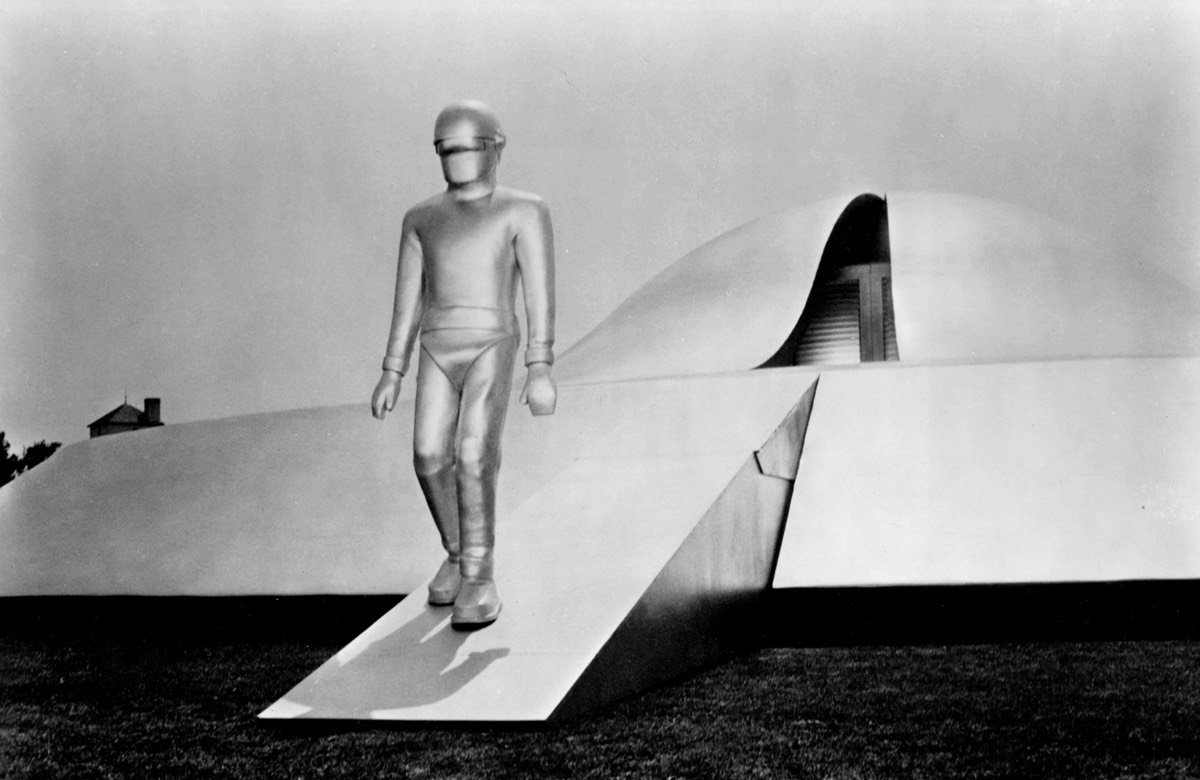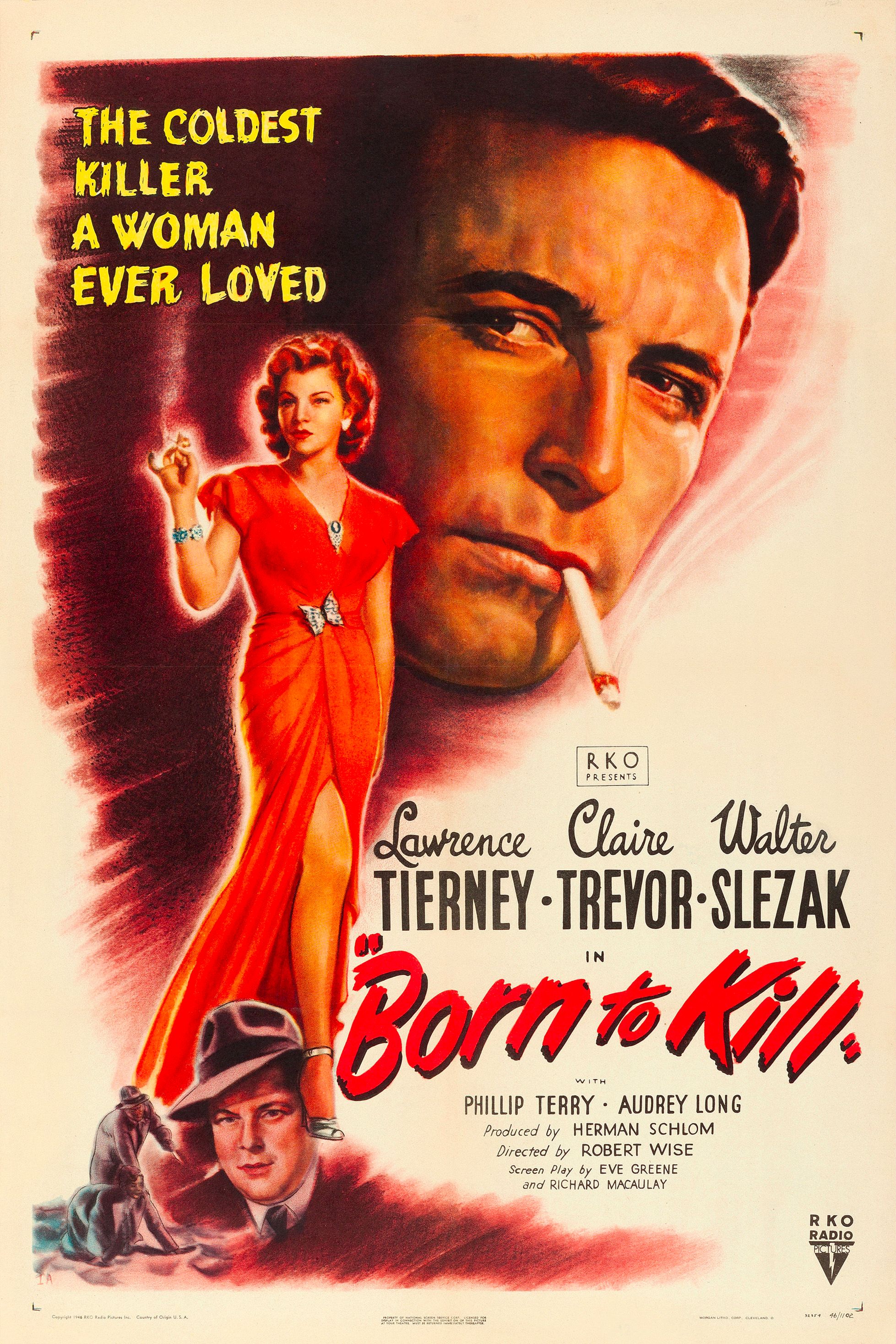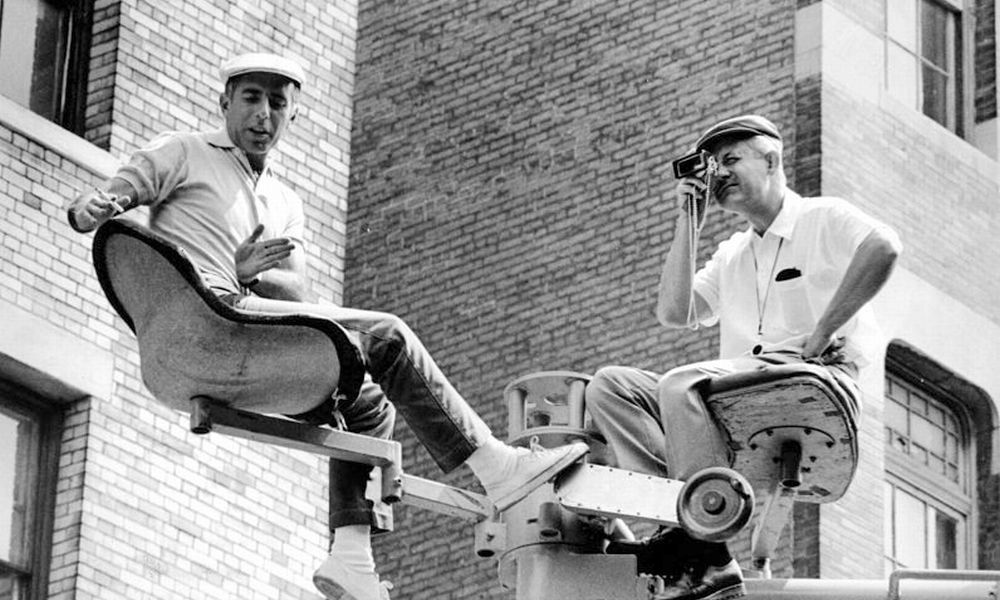"While he never found a personal cinematic style or displayed a taste for any special theme or genre, Robert Wise made a number of films that may be described as superior entertainment. He was in fact a solid, conscientious craftsman and a fluent story-teller mercifully free of grandiose pretensions." - Geoff Andrew (The Film Handbook, 1989)
Robert Wise
Director / Editor / Producer
(1914-2005) Born September 10, Winchester, Indiana, USA
Top 250 Directors / 50 Key Noir Directors
(1914-2005) Born September 10, Winchester, Indiana, USA
Top 250 Directors / 50 Key Noir Directors
Key Production Country: USA
Key Genres: Drama, Crime Drama, Crime, Film Noir, Science Fiction, Thriller, Musical Drama, Gothic Film, Musical, Melodrama, Psychological Drama, Western
Key Collaborators: Albert S. D'Agostino (Production Designer), Nelson Gidding (Screenwriter), Boris Leven (Production Designer), William Reynolds (Editor), Ernest Lehman (Screenwriter), Thomas Reilly (Editor), Cedric Gibbons (Production Designer), Walter E. Keller (Production Designer), Julie Andrews (Leading Actress), Robert Mitchum (Leading Actor), Robert Ryan (Leading Actor), Eleanor Parker (Leading Actress)
Key Genres: Drama, Crime Drama, Crime, Film Noir, Science Fiction, Thriller, Musical Drama, Gothic Film, Musical, Melodrama, Psychological Drama, Western
Key Collaborators: Albert S. D'Agostino (Production Designer), Nelson Gidding (Screenwriter), Boris Leven (Production Designer), William Reynolds (Editor), Ernest Lehman (Screenwriter), Thomas Reilly (Editor), Cedric Gibbons (Production Designer), Walter E. Keller (Production Designer), Julie Andrews (Leading Actress), Robert Mitchum (Leading Actor), Robert Ryan (Leading Actor), Eleanor Parker (Leading Actress)
"Robert Wise began as a film editor, working with distinction on Orson Welles's Citizen Kane (1941) and The Magnificent Ambersons (1942)... Wise made movies until he was well into his eighties. Films such as The Day the Earth Stood Still (1951), and Star Trek (1979) point back to his early experiments with special effects during the 1940s. Some have criticized him for rigidly adhering to genre rather than evolving his own discernible directorial style. A tall order, perhaps, considering his range. Nonetheless, Wise's films were all stamped with the same degree of professionalism. And they were undeniably successful, winning awards as well as pleasing the movie-going hordes." - Matthew Coniam (501 Movie Directors: A Comprehensive Guide to the Greatest Filmmakers, 2007)
"After directing a number of routine B pictures in the late 40s, Wise made what many consider the best boxing drama ever filmed, The Set-Up (1949), a mercilessly candid portrait of the seedy world of the professional ring... Wise followed this in the 50s with such high quality films as The Day the Earth Stood Still, Executive Suite, Somebody Up There Likes Me, I Want to Live and, Odds Against Tomorrow." - The MacMillan International Film Encyclopedia, 1994

The Day the Earth Stood Still (1951)
"Although Robert Wise's most celebrated film was The Sound of Music (1965), shot in splendid Todd-AO and De Luxe Color, his forte was gritty, small-budget, black-and-white realistic dramas. Robert Wise became one of Hollywood's leading directors by moving from genre to genre, from style to style, in a workmanlike manner. Although he did so without imposing any discernible personal stamp on his films, he directed some of the finest boxing dramas, sci-fi movies, and horror films." - Ronald Bergan (Film - Eyewitness Companions, 2006)
"In the complex interplay of genre, ideology and personal authorship, Wise acknowledged that “most of my films have had something to say beyond the entertainment value, to make a comment about man and society or the world today.” In his most socially conscious films, he revealed a liberal humanistic “anti” stance on issues such as nuclear arms, capital punishment, racial discrimination and war. Wise’s foregrounding of those issues can be counted as evidence of an ideological signature, although this would not be enough to satisfy Andrew Sarris’s somewhat ill-defined premise of “interior meaning” apropos of the auteur theory. In order to appreciate Wise in all his colours and textures, the auteur label may actually be limiting. As a great artist, Wise displayed qualities which T.S. Eliot saw in only the greatest poets such as Tennyson: namely, “abundance, variety, and complete competence.”" - Adrian Schober (Senses of Cinema, 2020)
"Variable American director and former editor, notably with Orson Welles on Citizen Kane (1941) and The Magnificent Ambersons (1942)… Although he has tackled every kind of subject, his best work is with intimate, almost claustrophobic themes - the business battles of Executive Suite (1954), the death-cell drama of I Want to Live (1958), the occult horror of The Haunting (1959)." - Margaret Hinxman (The International Encyclopedia of Film, 1972)
"Despite a filmography of undoubted classics in almost every genre and at almost every price tag, Robert Wise, a former president of the Directors Guild of America and winner of two DGA Awards, is often regarded with suspicion by critics. He is routinely praised with the backhanded admiration due a craftsman and all-around take-charge professional rather than an artist, let alone a visionary. Often he is touted exclusively for his early work—The Body Snatcher, Blood on the Moon, The Set-Up—made before, as one critic put it, "growing budgets made him reluctant to take chances." Yet when did Wise take more chances than in such late-career, extremely personal, and risky projects as The Sand Pebbles, Star!, and The Andromeda Strain? A revisionary evaluation is overdue." - Gary Giddins (DGA, 2011)
"Robert Wise was marked as a director to watch very early in his career. Among Val Lewton alumni, he occupies a middle position between Jacques Tourneur at the top and Mark Robson at the bottom. His temperament is vaguely liberal, his style vaguely realistic; but after The Sound of Music and The Sand Pebbles, the stylistic signature of Robert Wise is indistinct to the point of invisibility." - Andrew Sarris (The American Cinema, 1968)
"American director whose work became more variable as his career progressed - generally at his best with small-scale or sinister subjects. But, strangely, his two Academy Awards have been for big, splashy musicals - West Side Story and The Sound of Music - a far cry from the days when he edited films for Orson Welles." - David Quinlan (Quinlan's Film Directors, 1999)
"A much maligned director who has a good pictorial sense and the ability to integrate a hint of realism and an interest in social issues into all types of projects." - William R. Meyer (The Film Buff's Catalog, 1978)
“A former film editor turned director and sometime producer who has quietly emerged as a filmmaker of considerable stature.” - The Encyclopedia of Hollywood, 2004
"I think one of the major things a director has to do is to know his subject matter, the subject matter of his script, know the truth and the reality of it. That's very important." - Robert Wise
Selected Filmography
{{row.titlelong}}
GF Greatest Films ranking (★ Top 1000 ● Top 2500)
T TSPDT N 1,000 Noir Films
R Jonathan Rosenbaum S Martin Scorsese
T TSPDT N 1,000 Noir Films
R Jonathan Rosenbaum S Martin Scorsese
Robert Wise / Favourite Films
All About Eve (1950) Joseph L. Mankiewicz, Apocalypse Now (1979) Francis Ford Coppola, The Godfather (1972) Francis Ford Coppola.
Source: Fifty Filmmakers Book (2002)
All About Eve (1950) Joseph L. Mankiewicz, Apocalypse Now (1979) Francis Ford Coppola, The Godfather (1972) Francis Ford Coppola.
Source: Fifty Filmmakers Book (2002)
Robert Wise / Fan Club
John Woo, Martin Scorsese, Grégory Valens, Houshang Golmakani, Carlos Helí de Almeida, Joe Dante, Spike Lee, Adam McKay, Slavoj Zizek, Sérgio Alpendre, Rob Vaux, Marjane Satrapi.
John Woo, Martin Scorsese, Grégory Valens, Houshang Golmakani, Carlos Helí de Almeida, Joe Dante, Spike Lee, Adam McKay, Slavoj Zizek, Sérgio Alpendre, Rob Vaux, Marjane Satrapi.
"Fan Club"
These film critics/filmmakers have, on multiple occasions, selected this director’s work within film ballots/lists that they have submitted.
These film critics/filmmakers have, on multiple occasions, selected this director’s work within film ballots/lists that they have submitted.


